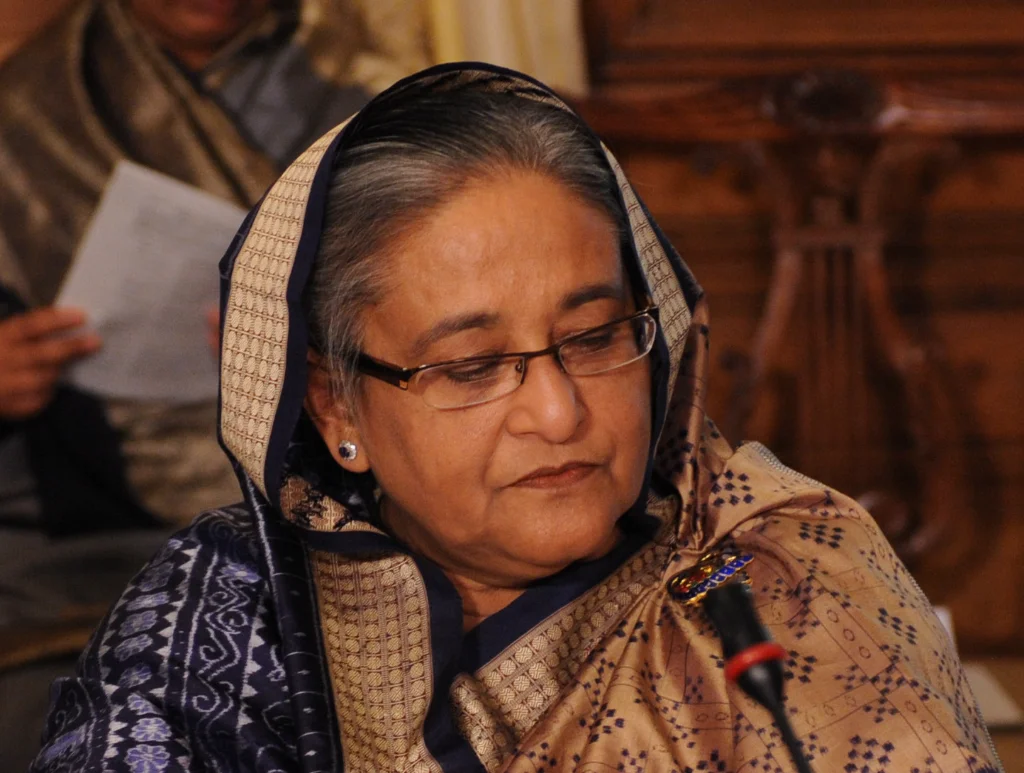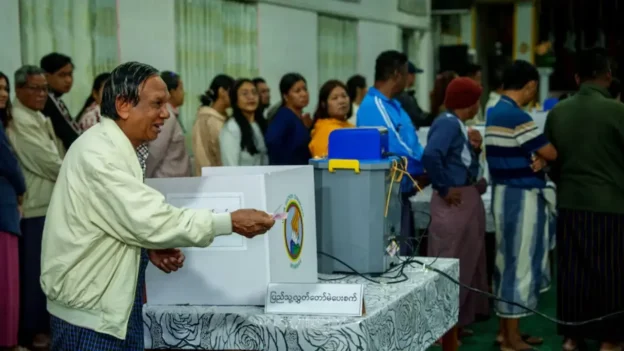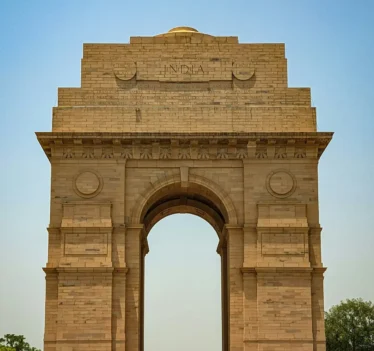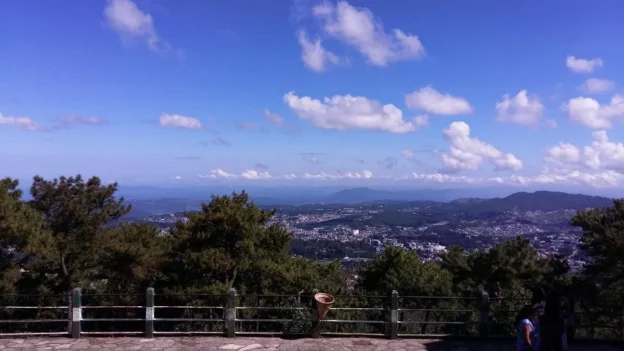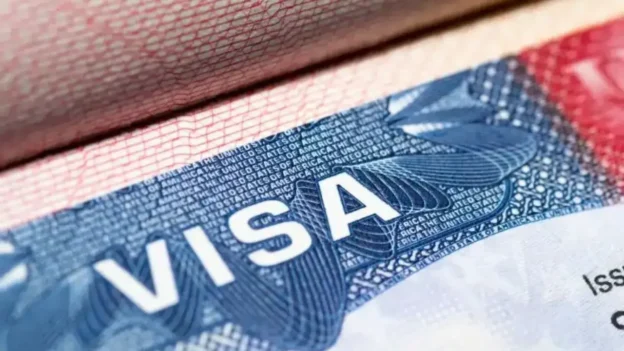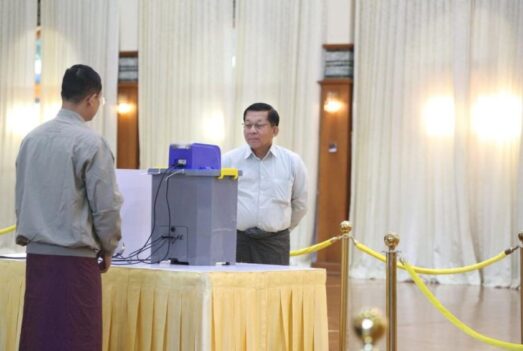In recent days, Bangladesh has entered a political moment that feels less like transition and more like transformation—swift, secretive, and possibly orchestrated. From the formal banning of the Awami League’s activities on Monday to the lungi-clad midnight escape of former President Abdul Hamid on Thursday, from a Pakistani envoy’s abrupt disappearance to the cancellation of the army chief’s U.S. trip, the flurry of events unfolding has raised a question too big to ignore: are these disparate incidents all pieces of one larger geopolitical puzzle?
This wave of developments is not merely chaotic—it is calculated. The pattern emerging points towards a deeper, more deliberate realignment of power, where old allegiances are collapsing, and new alliances—some ideological, others covert—are quietly cementing. In the background, an interim government led by Nobel laureate Muhammad Yunus, aided by elements with historic opposition to the Awami League, is steering Bangladesh into uncharted waters. And all of it comes under the shadow of international involvement, especially from Pakistan and the United States, with India watching warily from the sidelines.
Let’s unravel the events one by one—and then draw the line that may be connecting them all.
A political earthquake: The ban on the Awami League
On Monday, the interim government issued a formal notification suspending all activities of Bangladesh’s oldest and historically most significant political party—the Awami League. The decision has shaken the country’s political foundation. While legal justifications have been cited—through amendments to the Anti-Terrorism Act, 2009 and the newly minted Anti-Terrorism (Amendment) Ordinance, 2025—many legal experts have questioned the constitutional validity of such a sweeping move.
Dr. Zahed Iqbal, a Supreme Court lawyer, told BBC Bangla that the law now criminalizes any public support for the Awami League. Under the amended ordinance, not only is the party’s function outlawed, but any form of propaganda or expression supporting it is also punishable. In essence, the state has criminalized a political identity.
What makes this move particularly chilling is the growing perception that this is less about justice and more about erasure. For many observers, this is not just a political purge but an attempt to redraw the historical narrative of Bangladesh’s liberation movement—of which the Awami League and Sheikh Mujibur Rahman, father of the ousted Prime Minister Sheikh Hasina, were central figures.
Justice or vengeance? The debate over democratic legitimacy
No doubt, the Awami League must answer for its authoritarian excesses, especially since the controversial 2014 elections and the violent suppression of dissent during the 2024 student uprising. Independent media, including The Daily Star, have been forthright in holding the party accountable: “Make no mistake, the AL (Awami League) has much to answer for.”
Yet the question remains—should accountability take the form of collective punishment? Transitional justice is not meant to replicate the sins it aims to correct. Dissolving political parties does not heal societies; it deepens divisions and creates martyrs. And perhaps most worryingly, it opens the door for a future where any party can be banned if deemed “unacceptable.”
The lungi exit: Former President Abdul Hamid flees
As if the Awami League ban wasn’t explosive enough, what followed resembled a scene from a political thriller. In the dead of night on May 8, former President Abdul Hamid quietly boarded a Thai Airways flight from Dhaka, reportedly dressed in a lungi. His exit stunned the nation—and seemingly, the interim government too.
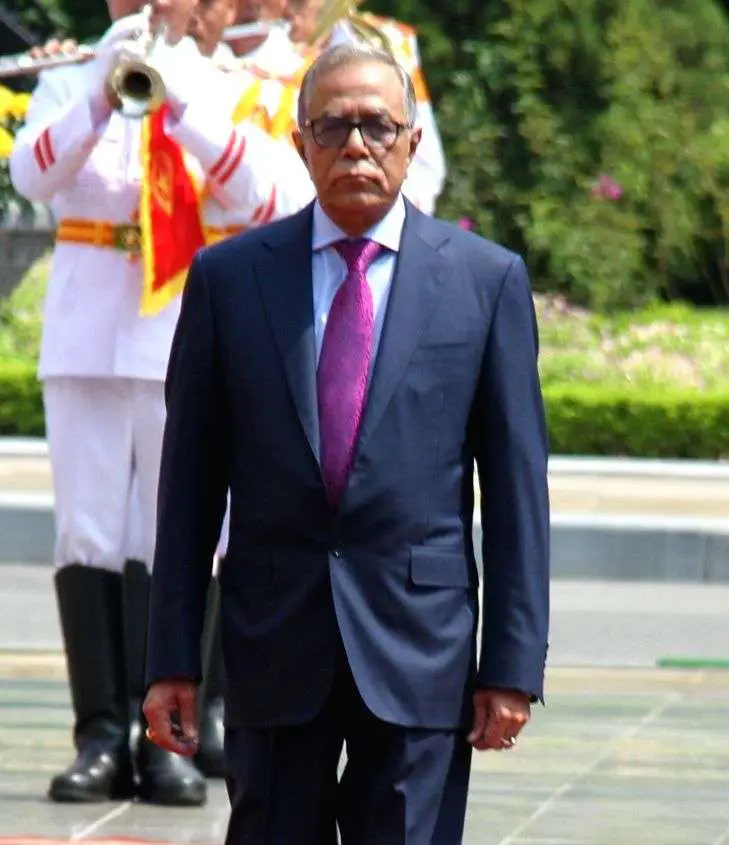
Hamid, who served as President from 2013 to 2023, is a co-accused in a murder case linked to the 2024 crackdown on protesters. The case, filed at Kishoreganj Sadar police station, also names Sheikh Hasina, Sheikh Rehana, Sajeeb Wazed Joy, and Saima Wazed Putul. Reports suggest Hamid’s name appeared in investigations around direct orders for firing on demonstrators.
Following his departure, several officials at the airport were suspended and a high-level probe was initiated—revealing that even those at the helm of the new administration may not have full control over all levers of state.
An envoy vanishes: The curious case of Syed Ahmed Maroof
Just two days before Hamid’s escape, on May 11, Pakistan’s High Commissioner Syed Ahmed Maroof quietly left Dhaka for Islamabad via Dubai, catching both the media and Bangladesh’s Ministry of Foreign Affairs by surprise.
No specific reason was given, though the High Commission said Maroof would be on leave for two weeks and that Deputy High Commissioner Muhammad Asif would assume charge. But seasoned observers are not buying the official line. Maroof had been unusually active in the political corridors of Bangladesh ever since the ouster of the Hasina government last August. He held several closed-door meetings, especially with members of the Jamaat-e-Islami—now part of the interim government—and reportedly traveled to Cox’s Bazar just days before his departure.
Sources believe that Maroof was urgently summoned to Islamabad to recalibrate Pakistan’s strategy in the region, with the Chittagong Hill Tracts (CHT) emerging as a possible focal point. Theories range from attempts to form armed proxy groups that could destabilize India’s Northeast, to using the CHT as a corridor for supplying aid—or arms—to the Arakan Army in Myanmar. These possibilities are not just speculative; they are plausible given the history of ISI operations in the region.
Yunus, the US, and the undercurrents of influence
In the middle of this whirlwind stands Muhammad Yunus, a figure once celebrated for microfinance but now cast in a more controversial light. Appointed as the head of the interim government with strong support from Western capitals, particularly Washington, Yunus’s ascendancy is no coincidence.
The sudden cancellation of Army Chief Waker UZ Zaman’s planned U.S. trip, scheduled for May 11, has further raised eyebrows. Some reports suggest that his visit was meant to reassure strategic partners. Its cancellation—without explanation—points to a widening fault line between military structures and the interim political arrangement.
New Delhi, meanwhile, is treading cautiously. After its recent display of strength in response to Pakistan’s provocations, it is now closely watching developments in Dhaka. Maroof’s interactions with anti-India political actors, the inclusion of Jamaat-e-Islami in the interim cabinet, and Yunus’s proximity to American backers all suggest an emerging alignment that may attempt to shift Bangladesh’s strategic orientation away from India.
Erasure of history or reinvention of politics?
At the core of this political storm lies a moral dilemma: how do societies reckon with their authoritarian pasts without falling into cycles of vengeance? While supporters of the ban on the Awami League cite the student uprisings as a moral reckoning, even they are divided on the path forward.
As The Daily Star aptly noted, “Justice demands that we punish the guilty—not everyone who are not directly involved with them.” The line between accountability and retribution is a fine one, and it is not clear that the interim government understands, or even respects, that difference.
Today it is the Awami League. Tomorrow it could be any dissenting voice. What begins as a righteous act can easily morph into a tool for permanent suppression.
A larger pattern—and a warning
When viewed in isolation, each of these developments can be dismissed as coincidence or chaos. But together, they resemble coordinated acts in a silent coup against Bangladesh’s democratic soul. A banned party. A fleeing president. A disappearing diplomat. A canceled army visit. A realigned interim regime, quietly sanctioned by powers far from South Asia.
This is not just about the Awami League. It’s about how a state handles memory, justice, and dissent. Bangladesh may be witnessing not just a political transition, but a tectonic shift in its national identity—with international fingerprints all over the scene.
If this is the beginning of a new order, it must be asked: whose order is it—and who benefits most from erasing the past to script a new future?

